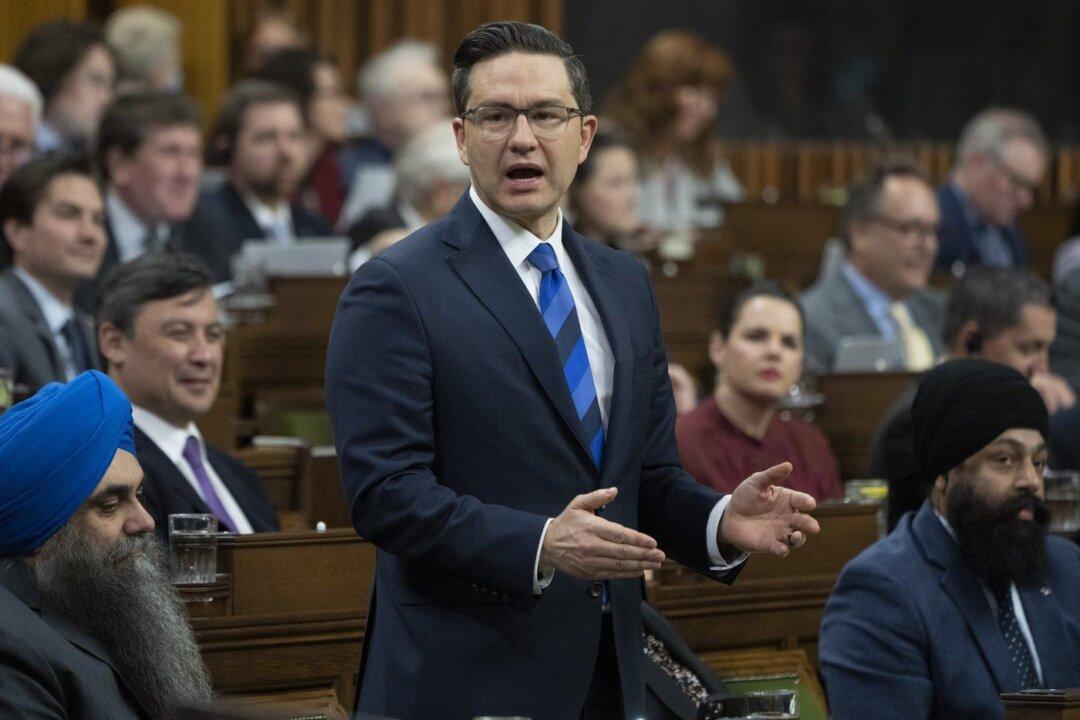The federal Conservatives have been delaying a committee vote on the Liberal government’s omnibus budget bill over the past month in a bid to help prevent a nationwide mortgage-payment crisis from occurring by 2025, says Conservative Party leader Pierre Poilievre.
Poilievre said during a press conference in Ottawa on June 5 that he believes the federal government’s Budget Implementation Act—or Bill C-47—will lead to “$60 billion of inflationary deficits.”





